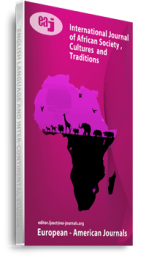This study focuses on the religion and cultural practices of Ekwunekwune people in Ikwo Local Government Area of Ebonyi State, Nigeria, from 1940 to 2007. Christianity was introduced into the community in the 1940s when missionaries of the Church of Scotland Mission sailed from Calabar to preach the gospel of Jesus Christ in the area. Then the Church was vehemently resisted as an anti- cultural practice from the Western world. Despite that early resistance, Christianity has survived along side the culture of the people, resulting to a new social order where the foreign religion and the people’s culture co-exist without much differentiation and noticeable impact on the old ways of the people. In 2007, the democratic experiment in Nigeria under OlusegunObasanjo which saw an influx of changes in many parts of the country, ended without much effect on Ekwunekwune. The study stems from an interest in the many gods of the people and their several cultural practices and festivals. It is dependent on the primary sources of data,mostly derived through directoral accounts, due to the dearth of written documents on past events in the community. It is a qualitative study which uses the analytic and narrative approaches of history to present its findings. The study uses the Cause – Effect theory to question the relevance of some of the cultural practices in Ekwunekwune. The theory examines the causes of changes in a society and how the changes affect the social order of the people. The paper argues that a people’s culture, when it is change resistant, could result to stagnation of social developments, and eventually lead to their backwardness and underdevelopment.
Keywords: Cultural Practices, Economic interest., Ekwunekwune, Modernity, gods

